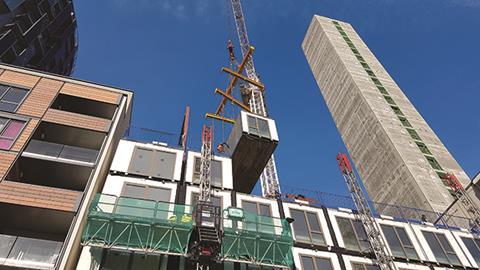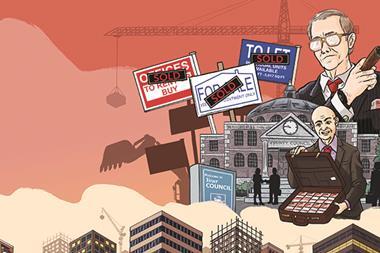For the first time in the history of Mipim, the British government has its own pavilion at the Davos of the real estate industry. Little wonder.

Mipim offers the perfect opportunity for the property sector to regroup and share ideas. Nowhere else offers the opportunity to meet such a huge amount of people, from such a broad range of companies, in such a small space of time. The kind of collaboration that MIPIM sparks will be crucial in steering ourselves through the turbulence ahead. And with the UK property sector contributing £94bn to the UK economy, we all have a huge part to play.
After an opening day packed full of events at the Addleshaw Goddard villa, on Wednesday morning we co-hosted one of the flagship events of the MIPIM calendar with the British Property Federation– and UK property – can do to stay relevant in the rough times ahead, bringing together an all-star panel of Bill Hughes, head of real estate assets at Legal & General, Chris Grigg, chief executive of British Land, Jackie Sadek, chief executive of UK Regeneration and Sharon Quinlan, managing director of UK real estate at Barclays.
For all the high-tech holograms and housing ministers in VR headsets on show at Mipim, one unassailable fact rings true: construction as a whole isn’t keeping up the pace with the modern day world.
Minister for Housing Gavin Barlow @EalingInLondon1 @MIPIMWorld pic.twitter.com/TX7ThdrAYy
— Peter Murray (@PGSMurray) March 15, 2017
According to McKinsey, the UK’s sclerotic construction industry is only ahead of the agriculture and hunting sectors as the slowest adopter of new technologies.
Put simply, this can’t go on. A healthy property sector needs a healthy construction sector. In the words of Jackie Sadek, when the government-commissioned Farmer Review told us that the sector must ‘modernise or die’, Mark Farmer was not asking a question: he was giving a warning.
What can we do?
They say only a bad workman blames his tools, but it certainly doesn’t help to carry on using old ones. The property sector must embrace and learn from other sectors. The likes of Legal & General and Vision Modular Systems have led the way, setting an example in delivering modular developments and adopting modern methods of construction. There is no alternative: without an industry-wide step change, we won’t deliver the housing and infrastructure we need.
Thankfully, there are signs that plenty realise the scale of the challenge and are willing to adapt to the profound societal shifts we see today: in demographics, in consumer preferences, and in work arrangements. As Sadek pointed out, if even civil servants are speaking the language of disruption these days, then there is hope for us all!

But embracing disruption means embracing its impacts at every level, from investors right down to consumers. Many in the industry are happy to talk a big game on the unalloyed good of disruption when it reduces their overheads. Not quite so many are up to speed on disruption that involves leaving their own comfort zones.
We need to see a shift towards the needs of occupiers, not investors
To take one example from Hughes, we need to see a shift towards the needs of occupiers, not investors. Businesses and tenants want change from the status quo: they want more amenities, more services, and shorter, more flexible leases – sometimes even as short as an hour.
That may mean higher initial outlays and bigger risk: but also bigger rewards. Valuers need to understand that shorter leases with high retention can have just as much or even greater value than a 15-year commitment, not least as it gets gradually tougher to find occupiers happy to sign up to one.
As Sharon Quinlan of Barclays said, we must prepare for the worst and hope for the best. But things aren’t all bad. London and the UK will likely remain somewhere people across the world will want to come to live, love and work. In the words of a Chinese investor at an earlier event: those of us in the UK may see Brexit as a huge issue, but many in China see it as a first world problem. Let us do all we can to prove them right.






























No comments yet